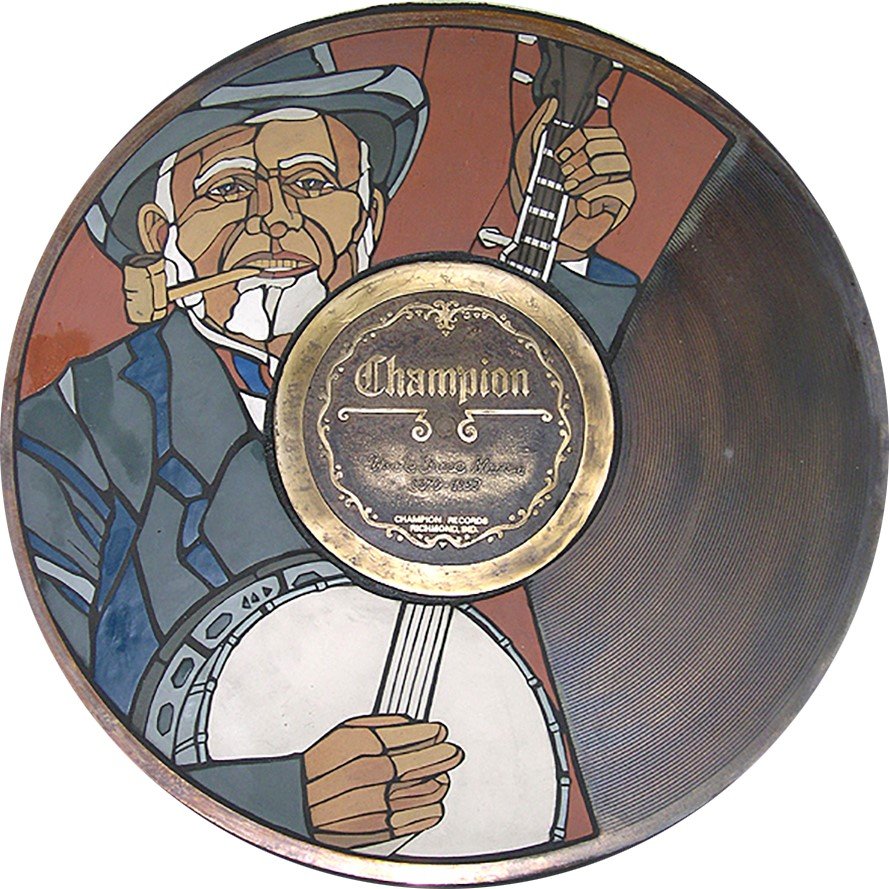uncle dave macon
Uncle Dave Macon
(2008 INDUCTEE) A SKILLED BANJO PLAYER AND MASTER SHOWMAN, UNCLE DAVE MACON WAS THE EARLIEST CELEBRITY OF THE GRAND OLE OPRY. HE RECORDED FOR GENNETT IN 1934.
Medallion Donation: DONATED BY PRIMEX PLASTICS CORPORATION
David Harrison Macon spent eighty years living a wonderful life: farmer, produce hauler, lay preacher, ham curer, banjo picker, song collector and comedian. “Uncle Dave Macon,” as he called himself, would also become the Grand Old Man of the “Grand Ole Opry.” The son of a Confederate Army office, Captain John Macon, Uncle Dave was born in Smartt Station, Tennessee, and spent part of his youth living in the Nashville hotel his father owned that catered to itinerant musicians and performers passing through middle Tennessee. He was taken with these colorful troupers and began playing the banjo himself by age 16. Uncle Dave did not become a professional perform until he was nearly fifty. Before that time he played the banjo and sang as a “busker”, hat on the ground and banjo in hand, in front of the Murfreesboro court house. His main job for 20 years was as owner and operator of a mule-and-wagon transfer company. After World War I, trucks threatened his hauling business. He had already developed his great talents as a banjo-picking minstrel and comedian and was eventually discovered by a vaudeville talent scout and booked in Loew’s Birmingham. In 1926, Uncle Dave joined the “WSM Barn Dance,” which later became “The Grand Ole Opry. George D. Hay, the “Solemn Old Judge” and founder and emcee of the radio show, soon nicknamed Uncle Dave “the Dixie Dew Drop.” In mid-August, 1934, Uncle Dave, accompanied by Sam and Kirk McGee, traveled to Richmond, Indiana, for a two-day recording session at Gennett. Fourteen sides were cut, including “Thank God For Everything,” “When the Train Comes Along,” “There’s Just One Way To the Pearly Gates,” “He’s Up With the Angels Now,” and “Don’t Get Weary, Children.” These were all signature Macon gospel and novelty songs. Uncle Dave is remembered as the Grand Ole Opry’s first superstar. Although eclipsed by Roy Acuff in 1939, he remained a mainstay of the show until his death. To this day, Opry members tell stories about Uncle Dave Macon backstage at the “new” Opry House and the Ryman Auditorium. The influence he has on old-time country music and rural showmanship will never fade away.

